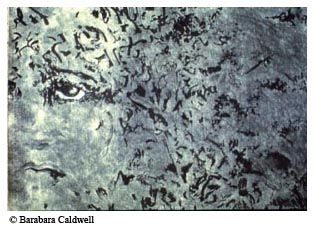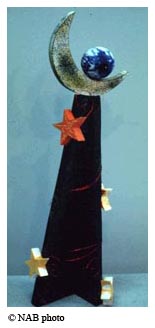Psychological Aspects Definition:
The psychological dimension of the making and messages of art work can provide opportunities for release of emotions, expression and definition of self. The problem solving inherant in artmaking can strengthen ones ability to address concrete and ambiguous challenges, engage and sharpen the senses and develop intrapersonal knowledge.


Related Concepts:
Identity and Individuality: Ones personal identity is what a particular person or their social group sees as their distinguishing characteristics, roles and values. Individuality includes particularly unique personal traits or style.
Expression of Feelings and Catharsis: Styles and subjects of artwork convey the vast range of human emotions, such as: tenderness, anger, confusion, peace, excitement, boredom, fear and love. Catharsis involves the release of feelings and contemplation of them in artmaking which can provide relief, clarity and/or resolution. Aristotle originated this concept relating it to the positive effects of tragic drama.
Self Efficacy and Esteem: Self-efficacy is the perception of personal ability to accomplish a goal or task, while self-esteem is an individual's perception of self worth.
Problem Solving: Artmaking involves many phases of creative problem solving such as inquiry and exploration, generating and applying alternative solutions, structural and contextual adaptations, perseverance and completion.
Development and Clarification of Values: In art, people often express what is important to them, what they value. Humans adapt and/or vary from the values of those around them, their culture, mass media, etc. Clarification of one's own values can be fostered by self knowledge gained through artistic endeavors.
Psychological Aspects
